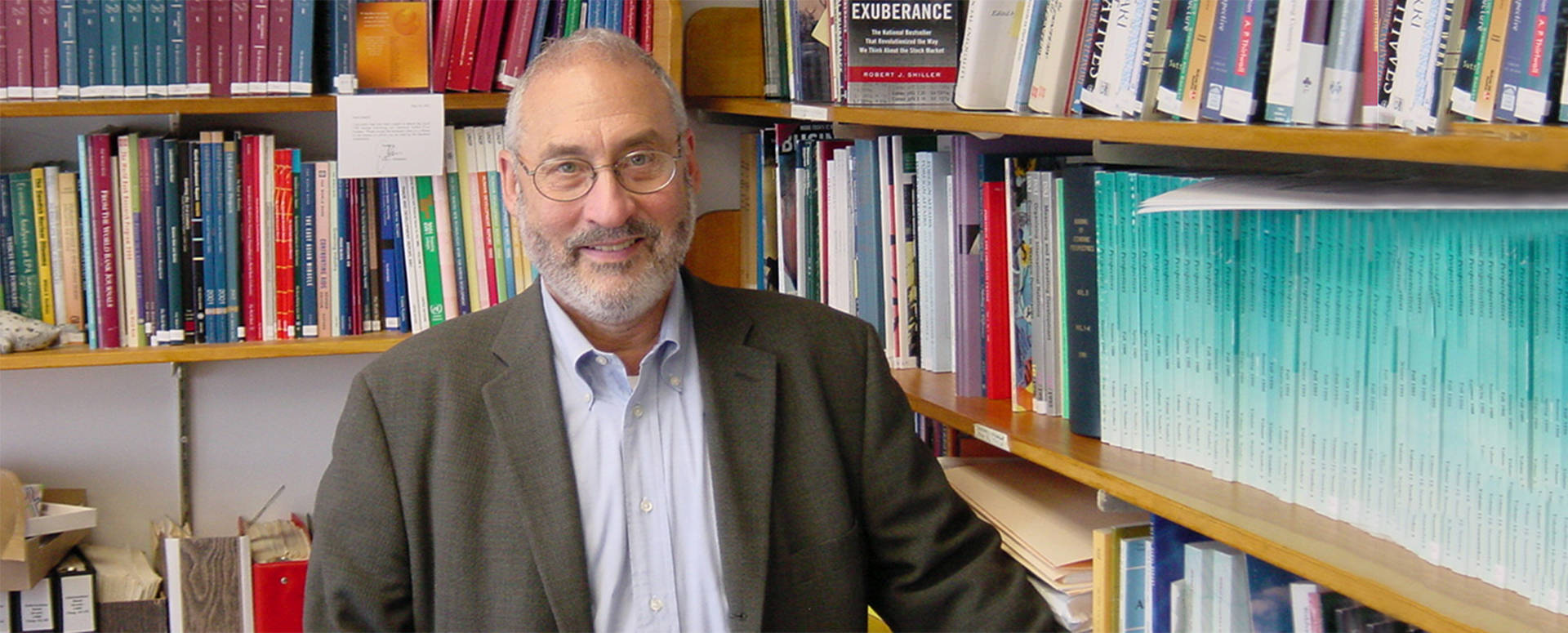
Joseph Stiglitz
Nobel Prize-Winning Economist
Joseph Stiglitz
Nobel Prize-Winning Economist
Biography
Regarded as one of the best economic minds of his generation, Joseph E. Stiglitz is the winner of the 2001 Nobel Prize in economics. His work has helped explain the circumstances in which markets do not work well and how selective government intervention can improve their performance.
He was a member of the Council of Economic Advisors from 1993-95, during the Clinton administration, and served as CEA chairman from 1995-97. He then became chief economist and senior vice president of the World Bank from 1997-2000.
Stiglitz helped create a new branch of economics, "The Economics of Information," which explores the consequences of information asymmetries and pioneers such pivotal concepts as adverse selection and moral hazard that have now become standard tools not only for theorists, but also for policy analysts. He has made major contributions to macroeconomics and monetary theory, to development economics and trade theory, to public and corporate finance, to the theories of industrial organization and rural organization, and to the theories of welfare economics and income and wealth distribution. In the 1980s, he helped revive interest in the economics of R&D.
His latest book, The Price of Inequality, addresses the causes of inequality, the reasons it’s growing so rapidly, and its economic impacts. In a controversial conclusion, Stiglitz states that redistributing wealth from the bottom up would produce far greater overall gains in our economies without adversely impacting the financial elites.
Stiglitz was born in Gary, Indiana, in 1943. A graduate of Amherst College, he received his PhD from MIT in 1967, became a full professor at Yale in 1970, and in 1979 was awarded the John Bates Clark Award, given biennially by the American Economic Association to the economist under 40 who has made the most significant contribution to the field. He has taught at Princeton, Stanford, and MIT, and was the Drummond Professor and a fellow of All Souls College, Oxford. He is now Professor of Economics and Finance at Columbia University in New York.
Recognized around the world as a leading economic educator, he has written textbooks that have been translated into more than a dozen languages. He founded one of the leading economics journals, The Journal of Economic Perspectives, and the best-selling author of Globalization and Its Discontents, The Roaring Nineties, Making Globalization Work, and Freefall. A talented and effective public speaker, Joseph Stiglitz is a man who knows the ins and outs of our country’s economic system and has the tools to explain how slight shifts in policy can have major ramifications.
Speech Topics
The Price of Inequality
Based on his important (and controversial) new book, The Price of Inequality, Joseph Stiglitz speaks about the causes of inequality, the reasons it’s growing so rapidly, and its economic impacts. He explains that markets are neither efficient nor stable and tend to keep money in the hands of a few rather than create competition, in an overall system that benefits the rich over the rest of society.
He demonstrates how moving money from the middle and bottom of society to the top, far from stimulating entrepreneurship, actually produces slower growth and a lower GDP with even more instability. He concludes that redistributing wealth from the bottom up would produce far greater overall gains in our economies without adversely impacting financial elites.
The best-selling author of Globalization and Its Discontents, The Roaring Nineties, Making Globalization Work, and Freefall, Joseph Stiglitz won the Nobel Prize for Economics in 2001.

)
)
)
)